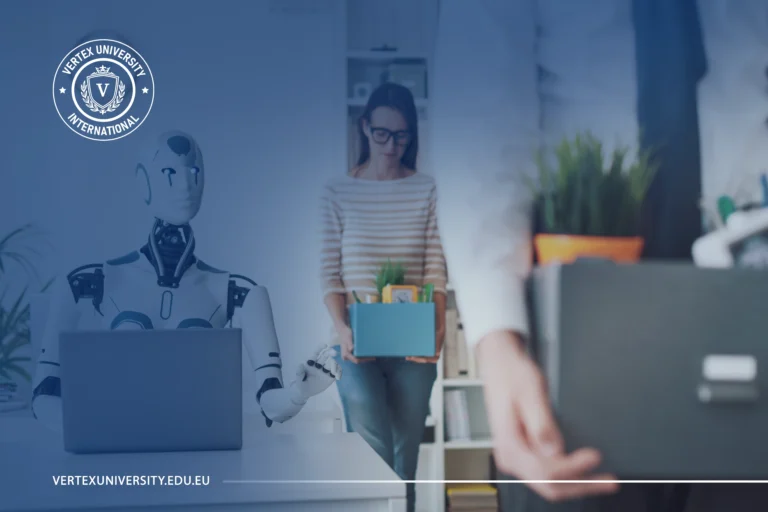The rapid evolution of artificial intelligence (AI) technologies has led to profound shifts in the global job market, raising widespread concerns about the future of traditional jobs. While many industries are swiftly embracing automation and digital transformation, several academic studies and market analyses suggest that certain professions will remain relatively protected from the impact of AI through 2030. This job immunity is largely based on core human elements such as deep interpersonal skills, critical thinking, and creativity—qualities that remain beyond the reach of current and even next-generation AI systems.
Jobs Least Affected by AI: A Qualitative Analysis
1. Jobs in Healthcare Fields
Examples: Doctors, nurses, physical therapists, psychologists.
Why is the healthcare sector among the least affected by AI in terms of jobs and professions?
Despite AI advancements, the healthcare sector is expected to remain reliant on human involvement through 2030, especially in professions such as those listed above. These roles demand high levels of human interaction, empathy, and complex decision-making under variable conditions. While AI can support diagnosis and treatment suggestions through medical data analysis tools, human communication and understanding patient-specific nuances are irreplaceable, making full automation in this sector unlikely.
2. Jobs in the Education Sector
Examples: School teachers, university professors, personal development coaches.
The education sector is moving towards digital transformation, yet remains secure from AI disruption:
Education goes far beyond the mere transfer and storage of information. It involves personal interaction, motivating students, adapting teaching methods to individual needs, and leveraging emotional and social intelligence to convey concepts. Although digital education is a rising trend and AI tools are increasingly used in remote learning platforms, the human presence remains vital in educational settings. The teacher-student relationship is expected to retain its human-centric nature through 2030 despite the digital shift.
3. Creative and Artistic Professions
Examples: Writers, designers, artists, directors, creative content producers.
Human creativity cannot be replicated or surpassed by AI
Creativity entails generating new and original ideas, often in unpredictable ways—a skill difficult for AI systems to fully emulate. While algorithms can produce texts or images based on existing data, the ability to formulate novel insights remains closely tied to human experience and cultural context. As such, AI is expected to assist rather than replace creative processes up to 2030, expanding the boundaries of human innovation rather than diminishing it.
4. Jobs in Executive Management and Strategic Leadership
Examples: CEOs, operations managers, policy planners.
Executive roles and fieldwork require human leadership
Leadership demands a blend of long-term vision, the ability to make high-stakes decisions under pressure, and strong interpersonal communication for coordinating departments and stakeholders. While AI can support data-driven decision-making, it cannot replace human intuition in navigating psychological and social dynamics. Consequently, executive and strategic roles are likely to maintain their reliance on human input through 2030.
5. Highly Skilled Manual Trades
Examples: Carpenters, blacksmiths, creative chefs, restoration technicians.
Machines are no substitute for manual craftsmanship
Despite technological advancements, manual trades still heavily depend on human skill. Full automation in this area would require a hybrid of generative AI with mechanical and electronic systems—a level of integration not yet realized. These professions demand a mix of hand skills, creativity, and adaptability to varying materials and conditions. While machines excel at mass production, they cannot rival the precision and uniqueness of handcrafted work. These trades are therefore expected to retain their human essence through 2030.
Why Do These Jobs Remain Immune?
The resilience of these job categories can be attributed to several shared characteristics:
- Emotional and social complexity: Human interactions require empathy and contextual understanding that machines cannot replicate accurately.
- Creativity and innovation: The ability to devise new solutions and ideas that go beyond established patterns.
- Critical thinking and problem-solving: Making decisions in unstructured and unpredictable contexts.
- The human touch: Trust, personal relationships, and emotional engagement remain irreplaceable.
- Artistic and technical craftsmanship: The blend of manual skill and aesthetic sensibility rooted in culture and experience.
Vertex University Believes in Humanity While Embracing Technology
Vertex University employs a learning model that combines the advantages of modern technology with the irreplaceable human connection between students and professors. All lectures across all colleges and disciplines are delivered live, ensuring effective communication between faculty and students. This commitment remains strong despite the university’s use of the latest educational tools, programs, and methodologies.
In Conclusion
As AI capabilities continue to grow, securing one’s professional future demands proactive awareness of current transformations. Jobs rooted in complex human skills—such as creativity, empathy, critical thinking, and fine manual abilities—clearly show resistance to automation through 2030 and beyond. Therefore, individuals must prioritize developing these core competencies to remain relevant in the evolving job market.
In the context of education, even as digital learning continues to advance, the human element remains indispensable. The student-teacher relationship is fundamentally human, and this is a belief strongly upheld by Vertex International University. The institution integrates cutting-edge digital learning technologies while maintaining a focus on human-centered education to ensure meaningful academic impact.








